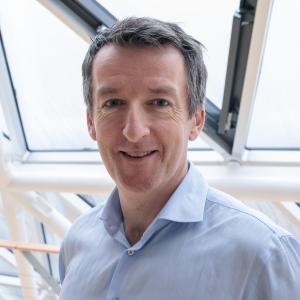Africa’s growth will depend on educating a new generation of leaders—like the kids coming out of one school in Kenya
Along a dirt track off the main road to Nakuru in western Kenya, a group of men labour with their hands in a lumber yard, bent over the logs, stretching their tired backs to watch a visitor pass. It’s an image of Africa, poor and underdeveloped and harsh, to which everyone is accustomed.
But past a maize field at the end of the track lies Africa’s future. Behind a green gate decorated with pink iron flamingos, Greensteds International School is educating the next generation of the continent’s leaders. That’s important, because Africa is expected to contribute the bulk of the increase in the world’s population this century. It’s a trend that presents tremendous opportunities for economic growth, so long as those guiding businesses and states are trained to be effective and responsible leaders.
“We spend a lot of time on developing the character of the students,” says John Murray Walker, the 46-year-old headmaster, “so that they are people who are able to lead with integrity.”
A girl on the Greensteds campus
Africa education needs
Africa’s population is 1.2 billion, or 16 percent of the world. The UN projects that will double by 2050. By the end of the century, Africans will have contributed 3.2 billion of an anticipated 3.8 billion increase in population. They will then account for 39 percent of the world’s people.
The increase is due to improvements in public health. Life expectancy for an African born in 1955 was only 37. Today it’s 60.
All this growth could exacerbate existing problems, of course. Education is one area where Africa badly needs improvement. Less than one in five African women gets any education. Half the world’s children not in education are African—that’s 30 million not in school.
Brian Mugabe, Greensteds head prefect, outside the school’s new dormitory
Choosing Africa for his career
Which is why Brian Mugabe is such an inspiring young man.
At 18, Mugabe is head prefect at Greensteds. He arrived at the school from his home in Kampala, Uganda at the age of 13. Though he was far from his family at a boarding school, he soon felt at home. “When I first got here, I was scared,” he says. “But everyone was very friendly.”
He now studies chemistry, geography and physical education. He aims to study for a degree at a university in the UK.
Many people in his situation might be tempted to remain overseas and build a life in a richer country. But Mugabe intends to return to Africa as a teacher.
“The school has developed my leadership skills,” he says. “I came as a very shy boy, when I was younger. But now I’m open to talking to people. I feel like Greensteds has made me a better person.”
EIB invests in Africa education
Mugabe adds that boyhood friends who remained in Uganda didn’t get the level of schooling he received. “I feel I have better opportunities than they do. They ask me about universities, and I can always help them because the teachers at Greensteds have helped me. So I’m getting better advice.”
“There’s not a school in Uganda that compares to Greensteds.”
Greensteds recently expanded its facilities with a new building for its male students. The EUR 1 million dormitory was financed with a loan from ABC Bank for almost half the project’s cost. ABC drew the funds from a lending facility backed by the European Investment Bank. The EUR 20 million facility is one of a number the EU bank operates across Africa. Intermediaries like ABC draw on the EIB funds to invest in projects that make a difference on the ground.
The Greensteds campus near Nakuru
Hope and vision for Africa education
Most of the students at Greensteds are East African, many of them from the local community in Nakuru, 17 km to the north. The school’s workers are also local. Founded in 1936, Greensteds is one of the biggest employers in Nakuru. Most of the teachers are British, hired for their expertise in the UK curriculum the school teaches, though some are Kenyan.
Headmaster Murray Walker, who’s originally from Southampton in the UK, sends his students off to universities across the world. But he wants them to come back. “Our hope and vision is that they will possibly go outside East Africa for their university education,” he says. “I hope that a majority of them will come back to East Africa after their education and have a chance to make a positive impact on East Africa. And I’m sure they will.”
Modern facilities
The children, aged from 2 to 18, describe the school’s facilities with great pleasure. The boarding house for the 16- to 19-year-old boys, which was financed by the EIB, is a modern facility built in local stone with lounges and neat study-bedrooms. It has “had a very positive impact on how they study and how they live,” Murray Walker says.
“The boys are very happy with that boarding house,” the headmaster adds, “so the girls now want their own.”
Two Greensteds youngsters
